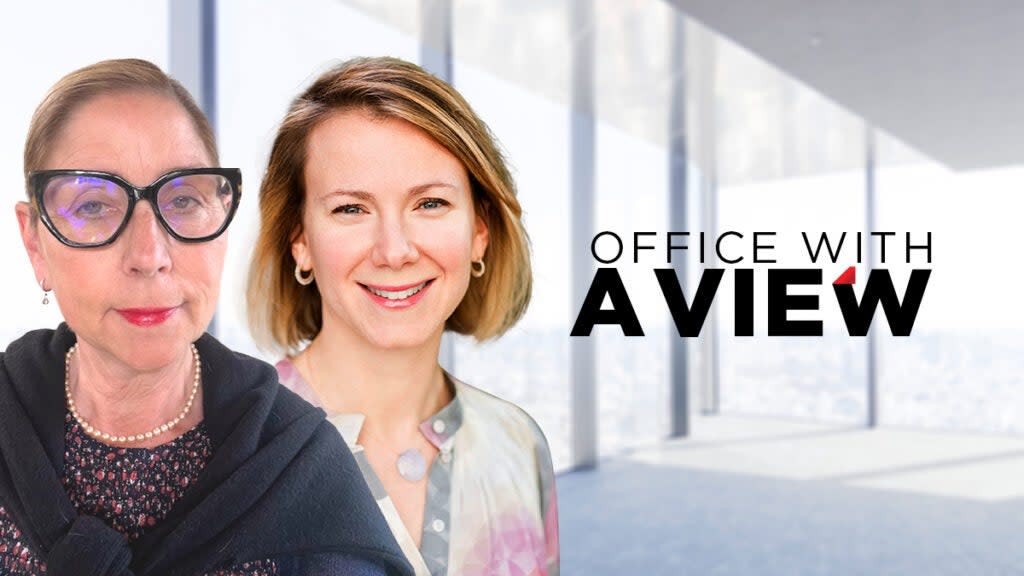Hulu Documentary Execs Say ‘Entertainment’ Isn’t a ‘Bad Word': ‘We Have to Get People to Listen’

For Hulu documentary executives Belisa Balaban and Beth Osisek, flexibility is the name of the game when it comes to the constant pivoting required by vérité and investigative projects — a quality that they say only strengthens unscripted storytelling.
“The hallmark of nonfiction is that you don’t always know where a story’s going to go,” Balaban, who serves as SVP of Hulu original documentaries and unscripted series told TheWrap for this week’s Office With a View. “That’s always the central challenge, and also opportunity of nonfiction filmmaking. And of course, that’s the challenge and opportunity for us — then we’ve got to pivot on our end as well — a story might shift, or the length might shift or characters might shift, and we’re there to support filmmakers through that process.”
As Balaban and Osisek, Hulu’s VP of documentaries, embrace feature-length documentaries and multi-part docuseries as what Osisek calls “living, breathing organisms” that are guaranteed to shift as filmmakers obtain access to new sources and make new discoveries, the duo must work across departments to adjust upcoming schedules, creative materials and other factors to reflect the projects’ most current needs.
Also Read:
How Kobe Bryant Helped Religion of Sports Cofounder Gotham Chopra Discover His Passion
This flexibility was certainly at work in “Victoria’s Secret: Angels and Demons,” which was released by the streamer in July 2022, when director Matt Tyrnauer uncovered ties between longtime CEO Les Wexner and Jeffrey Epstein, which influenced an overwhelming amount of decisions for the fashion brand, down to its marketing materials.
Similarly, while “Stolen Youth: Inside the Cult at Sarah Lawrence,” which traces the origins of the college campus cult and documents its aftermath, was originally intended to document survivor Daniel Levin’s account, the project evolved as additional sources came forward and abuser Larry Ray was arrested.
“There were there are periods, [in] which every week, there was a new revelation, and we had to pivot,” Balaban said. “[It] evolved tremendously because of what happened with the primary subjects who are central to the story over time.”
What are some qualities you’ve identified in stories or people that would make a good documentary?
Beth Osisek: It’s always about the people at the center of the stories — that’s who draws us into the story. The documentaries that we do have all the similar features of a great scripted story only, it’s even more jaw-dropping because it’s all real. We’re looking for great storytellers, telling stories about people that give us insights into the world and bring us into their world in a different way. We’re always looking for what’s the universal story that we’re telling, where is it that everybody, or a large portion of people can tie in? We start with smaller stories that get us to larger picture issues.
Belisa Balaban: We’re looking for people who have an extraordinary story to tell that have materials that they can share with us that no one has seen before, and show a side of the story that we haven’t seen before and is going to be surprising to people.
As you begin delving into a story, how do your early talks distinguish what would make a good docuseries vs. a feature-length documentary?
Balaban: We’re always encouraging filmmakers to tell their story as efficiently as possible, because both as executives and as viewers, we know that there’s a lot of choices out there and we’re always competing for our audience time with not only great documentaries, but great scripted shows [and] great podcasts. We want to be efficient with our audience’s time and give them what they want, as efficiently as possible.
Osisek: Ultimately, we’re just trying to capture people’s attention and hold it in the best manner that we can. Sometimes, that’s going to be feature length, sometimes that’s going to be a multi-part series. It’s usually the story itself that dictates that more than anything.
What’s something you’ve learned from the industry that you would like to pass on as knowledge to your peers and people who are growing their career, or wrestling with a specific problem?
Osisek: I always thought as a filmmaker that people just needed to know about a situation or a person in order to get involved with it, or to get interested in it. And I realized that, as storytellers, we have to entertain. That is our job, we have to get people to listen to our stories. How do you make it entertaining and yet leave people with something substantial to think about when they walk away? That’s just good storytelling. I started out very earnest, and thought that entertainment was a little bit of a bad word, and now I realized that that’s how you get more people to watch, and that’s what needs to be embraced.
Balaban: When I was starting out when I was a filmmaker I felt like I had to fit into a particular mold. The truth is what we’re always looking for is uniqueness — unique authorship, unique voices, people who are going to resonate with the story they’re telling, people who have a background that sets them up to be the storyteller of a particular subject, ethically. I want filmmakers to know that that door is wide open for them.
Also Read:
Hollywood Kept Calling and Coach Craig Robinson Saw an Opportunity to Create a Content Studio

